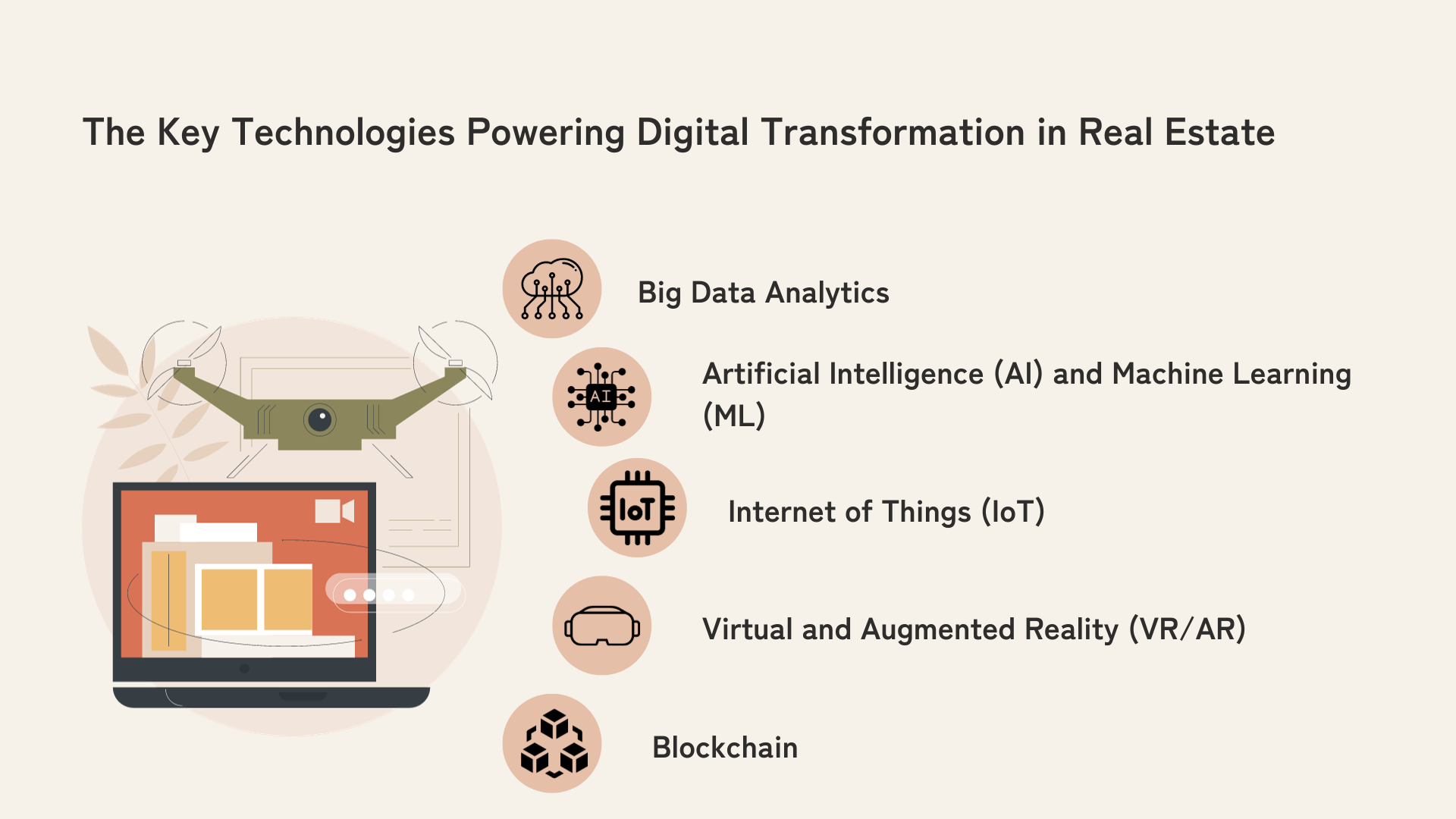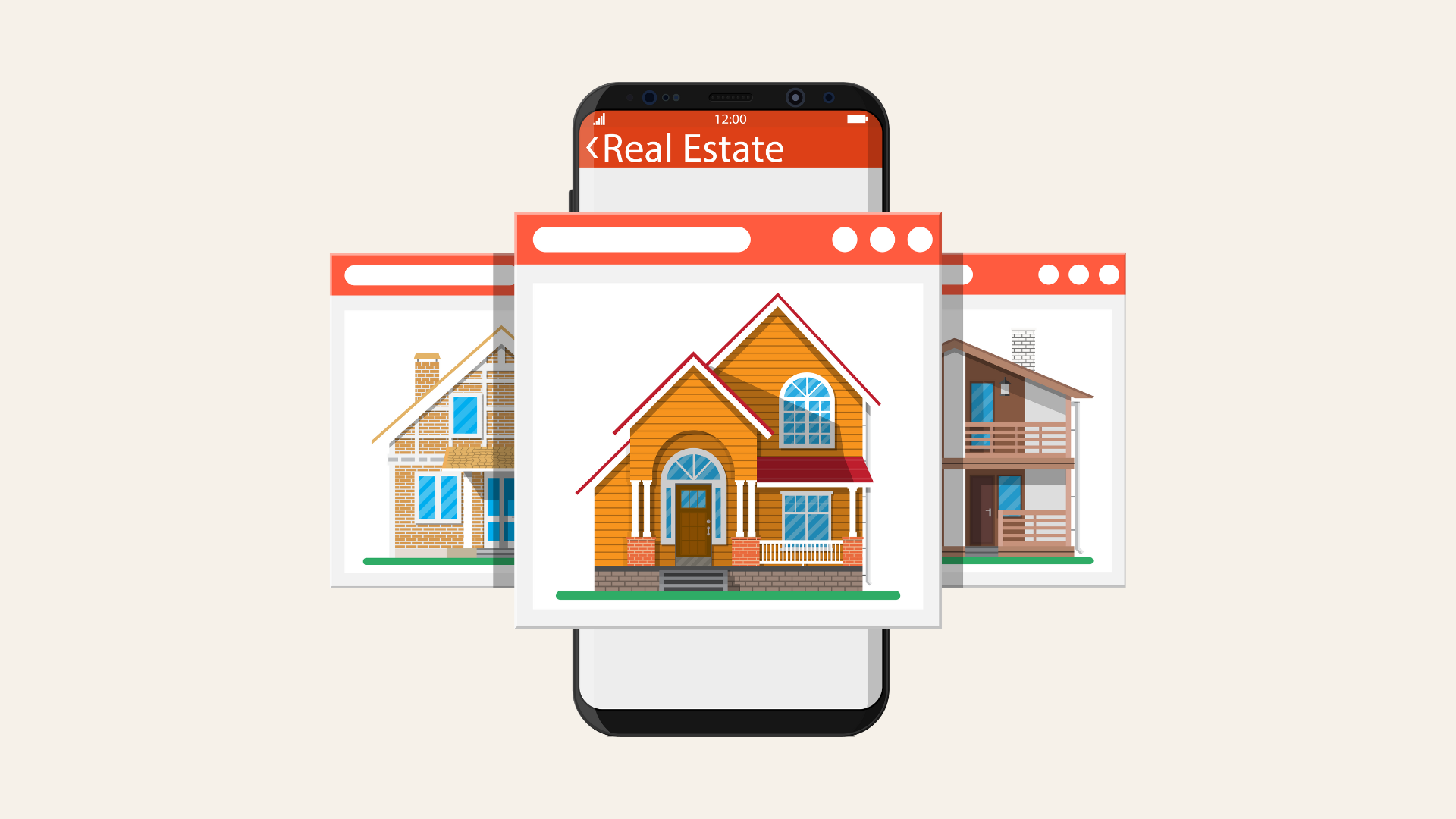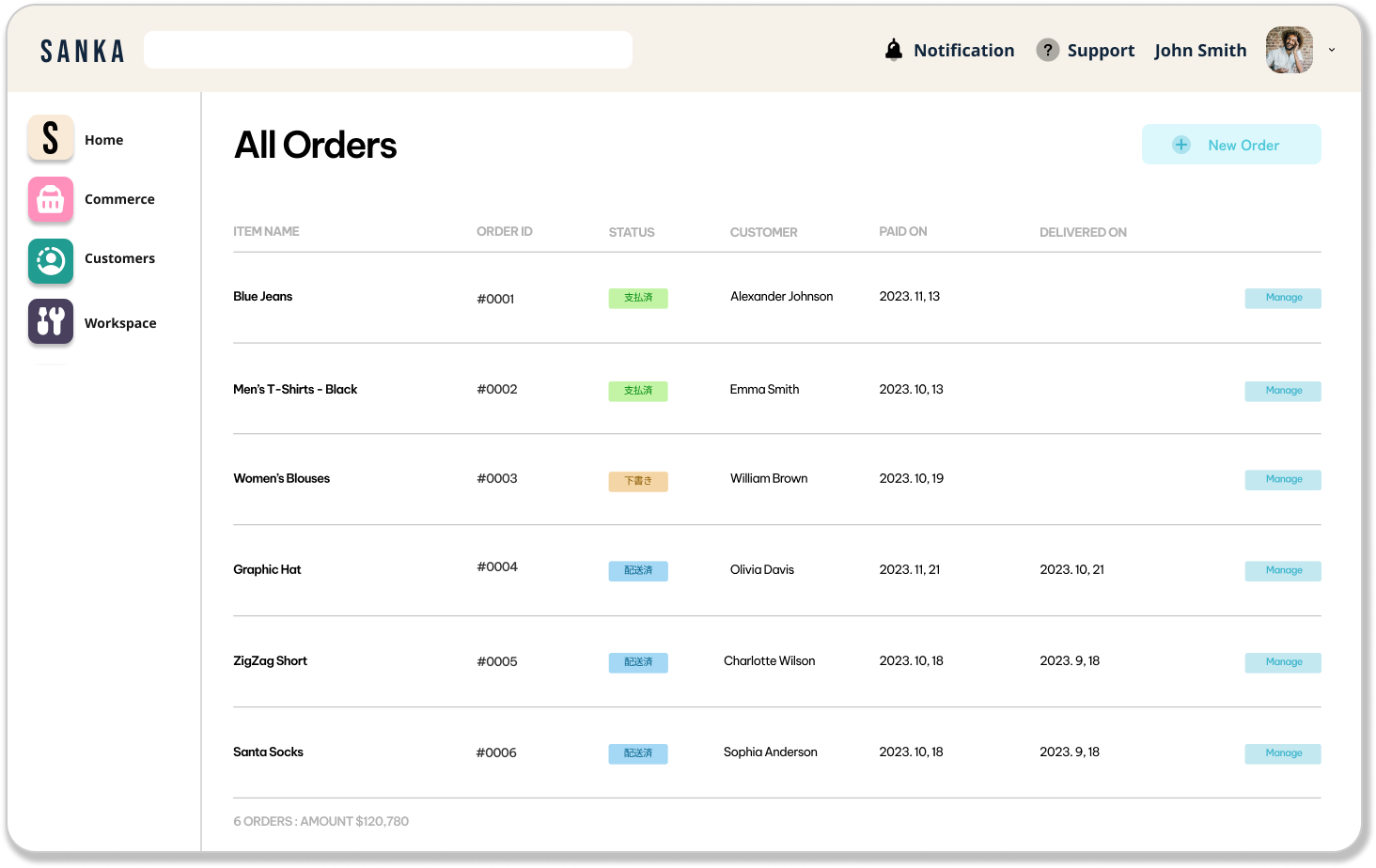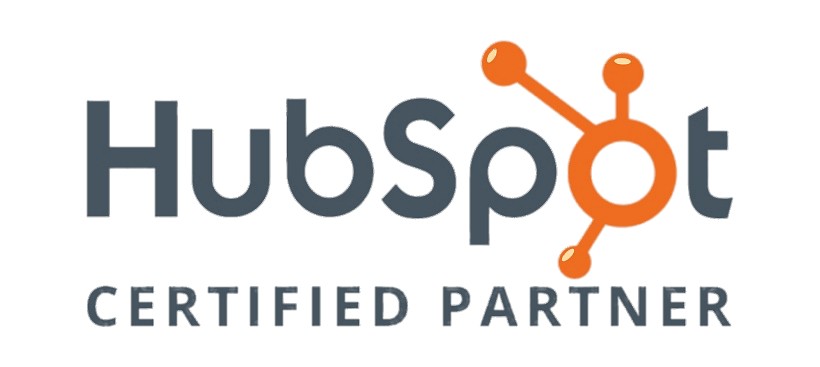Introduction
In today's hyper-digital era, no sector is untouched by the relentless wave of digitization – and real estate is no exception.
The industry, once known for its tradition and tangibility, is now experiencing a substantial shift, powered by digital transformation.
In the real estate sector, a historically conventional industry, digital transformation might seem quite daunting.
However, with advancements in technology and new digital platforms emerging, the potential benefits that digital transformation can bring to real estate are colossal.
This blog post takes you on a journey through the vital role of digital transformation in revitalizing the landscape of the real estate industry and the countless opportunities these changes present.
Digital Transformation in Real Estate: An Overview
The digital transformation in real estate signifies the integration of digital technology into all aspects of real estate operations.
It transforms the interactions between buyers, sellers, brokerages, and decision-making processes.
Digital transformation leverages advanced technologies such as artificial intelligence, machine learning, data analytics, blockchain, virtual and augmented reality, IoT, and other disruptive technologies to remodel real estate operations.
They offer solutions to traditional challenges, providing transparency, accuracy, and efficiency in operations.
The impact of digital transformation in real estate extends beyond simply adopting new technologies or providing online services.
It significantly alters traditional approaches to buying, selling and managing properties, offering countless opportunities for innovation and growth.
Thus, embracing digital transformation in real estate enables major optimizations for businesses and real estate professionals alike and ensures a better customer experience for the end users.

The Examples of Digital Transformation in Real Estate
Digital transformation in real estate is shaping the industry with innovative ideas and solutions, making it more efficient, customer-friendly, and profitable. Let's explore some specific examples of digital transformation activities in the real estate sector.
1. Virtual Tours and 3D Visualizations
Virtual and augmented reality platforms have made property visits more immersive and engaging.
Potential buyers can now 'walk through' properties remotely, saving time and resources associated with traveling to multiple site visits.
Companies like Matterport offer 3D visualization and virtual tour services, allowing customers to experience a property without ever setting foot in the door.
This technology not only significantly improves the house-hunting process but also makes showcasing a property to a wider audience easier for real estate agents and developers.
2. Artificial Intelligence in Real Estate
Artificial intelligence (AI) innovations such as chatbots and virtual assistants are changing the way potential clients interact with real estate businesses.
They provide instant customer service solutions by answering queries or providing property recommendations based on client preferences.
Another powerful implementation of AI is through machine learning algorithms that analyze property data to provide accurate price estimates or forecasts, streamlining property investment decision-making.
3. Big Data and Predictive Analytics
Big data has become an invaluable asset for the real estate industry. Its analysis provides insights on market trends, customer preferences, and property valuations.
Combining big data with predictive analytics helps real estate professionals make informed decisions.
One notable company, HouseCanary, developed a predictive analytics platform that offers data-driven, real-time property valuations.
Their technology enables investors to make informed decisions by understanding the market and property value fluctuations.
4. Blockchain-based Transactions and Smart Contracts
Blockchain technology has the potential to revolutionize the real estate sector by simplifying transactions, enhancing transparency, and reducing fraud.
Transactions on the Propy platform are recorded on the Ethereum blockchain, creating a digital record that cannot be changed or tampered with.
Another impressive application of blockchain is through smart contracts. These contracts automatically enforce the terms and conditions of a property agreement, simplifying the process and reducing the need for intermediaries.
5. IoT Solutions for Smart Homes and Buildings
The Internet of Things (IoT) has enabled the creation of smart homes and buildings, enhancing the overall living experience and property management process.
Smart features like controlling thermostat settings or monitoring water consumption can reduce energy consumption and have a positive impact on the environment.
An example is Nest, a leading smart home product manufacturer, that provides IoT solutions such as smart thermostats, smart doorbells, and security cameras.
These smart products help homeowners monitor and manage their properties efficiently, adding value to the overall property.
6. Proptech and Property Management Software
Proptech companies are developing innovative software and hardware solutions for property management.
These platforms streamline tenant communication, maintenance requests, property listings, rent collection, and other time-consuming tasks.
One such software, AppFolio, is an all-in-one property management solution for residential, commercial, and community association properties.
It automates tasks, allowing property managers to focus on providing exceptional service to their clients.
7. Online Marketplaces and Digital Platforms
Digital platforms and online marketplaces have transformed the way people search and engage with properties worldwide.
Companies like Zillow, Redfin, and Realtor.com, make it easy for users to search and filter for properties that match their needs and preferences.
These platforms provide a seamless user experience, enabling potential buyers or renters to get a wealth of information about the property at their fingertips.
Another example is CoStar Group, which focuses on commercial real estate listings.
This platform enables commercial real estate professionals to access market data, property listings and even tenant information, streamlining the decision-making process.
8. Crowdfunding and Fractional Ownership
Digital platforms have introduced innovative financing methods for property acquisition.
Crowdfunding platforms like Fundrise and RealtyMogul allow individuals to invest in real estate without purchasing the entire property.
Fractional ownership through tokenization divides a property into smaller units, allowing investors to own a part of the property and share in revenue from rentals or property appreciation.
Accelerate Your Real Estate Business with Sanka!
Are you ready to unlock the full potential of your real estate business? Embrace digital transformation today with Sanka, a game-changing business apps subscription tailor-made to streamline your operations, elevate efficiency, and drive growth.
With Sanka's suite of 20+ integrated apps, you'll enjoy unlimited usage to address sales, back-office tasks, project management, and more - all from one platform.
Get a competitive edge with AI-powered automation to cut labor expenses, customized apps to suit your needs, and data-driven insights to enhance sales, marketing, and upskilling.
Thousands of businesses, from startups to global enterprises, are already reaping the rewards of Sanka’s solutions. It's time for your real estate business to soar!
Reach new heights with outstanding ROI, free migration services, 24/7 support, and seamless onboarding.
Ready to thrive with Sanka’s comprehensive digital transformation solutions? Discover more and get started today!
The Benefits of Digital Transformation in Real Estate
The advent of digital technology has disrupted various sectors of the world economy, and the real estate industry is no exception.
The digitization of real estate has reshaped traditional practices in property sells and rents, management and marketing, leading to increased efficiency, reduced costs, and enhanced experiences for all stakeholders.
Here are the top benefits of digital transformation in real estate:
1. Enhanced Decision-Making
Big Data and predictive analytics have tremendously improved decision-making. Businesses can collect and analyze vast amounts of data, allowing managers and investors to make well-informed decisions quickly.
According to a report by Forbes, real estate industry leaders believe data analytics helps them make informed decisions.
Assessing data points like neighborhood demographics, local school ratings, or crime rates aids in accurate property valuation and predicting market trends, offering a substantial competitive advantage.
It eliminates much of the guesswork involved in traditional property sales and investments, aiding in accurate forecasting and strategic planning.
2. Increased Efficiency and Cost Saving
Digital transformation automates many time-consuming processes, enhancing productivity and cost savings.
Tasks such as paperwork, property inspections, and financial calculations can now be managed effectively using digital tools.
Artificial Intelligence (AI) and Machine Learning (ML) algorithms further optimize these tasks by learning from patterns and making predictions.
For instance JLL, a leading real estate and investment management company has used a custom AI media monitoring platform and found that not only does AI increased JLL's sales by 8% but also reduced manual tasks by 70%.
They free up essential resources, allowing businesses to focus more on strategic tasks, hence increasing efficiency.
3. Improved Customer Experience
Digital transformation has significantly enhanced the customer experience. Interactive websites and mobile apps allow customers to browse property listings, view virtual tours, and schedule in-person viewings.
Virtual tours have seen a surge, particularly during the COVID-19 pandemic. According to Zillow, there was a 188% increase in the creation of 3D home tours in one week in March 2020.
Modern CRM systems enable companies to maintain good customer relations by meeting their individual needs and keeping them informed, fostering trust and customer loyalty.
4. Facilitated Collaboration and Communication
With cloud computing and project management software, digital transformation has eased the collaboration process.
Team members can now share data, communicate, and work together seamlessly, regardless of their location.
It boosts team productivity, leading to timely project completion and increased business revenue.
5. Strengthened Marketing Efforts
With the help of digital marketing tools and social media platforms, businesses can reach a wider audience and generate more leads.
They can sophisticatedly target potential customers, display detailed listing information, and quickly respond to inquiries.
This effective marketing strategy not only improves customer engagement but also enhances the company's brand image.
6. Advanced Property Management
The integration of technology in property management has made this sector more professional and transparent.
Tenants and owners can access property information, pay rents, and request maintenance services via mobile apps.
In addition, smart home features powered by the Internet of Things (IoT) bring greater comfort and convenience, offering a competitive edge in the market.
7. Streamlined Transactions
Blockchain technology can potentially revolutionize real estate transactions by providing a more transparent and secure means of property transfers.
It eliminates intermediaries, reduces the risk of fraud, and speeds up the process.
The Challenges and Barriers for Implementation of Digital Transformation in Real Estate
While the benefits of digital transformation in the real estate industry are significant, there are also considerable challenges that can act as a barrier for businesses.
The following section discusses some of these challenges in further detail.
1. Lack of Technological Understanding
Understandably, the first major challenge is to comprehend and deploy these complex technologies effectively.
Not all businesses have the technical expertise required to successfully implement solutions like AI, VR/AR, predictive analytics or blockchain.
There is a steep learning curve associated with these technologies, and for many companies, this can act as a major deterrent.
2. Data Security and Privacy Concerns
With digitization comes the need for top-notch cybersecurity. Real estate businesses handle sensitive customer data including financial information and addresses, making them an attractive target for cybercriminals.
Implementing effective cybersecurity measures comes at a high cost. Furthermore, stringent regulations around data protection and privacy, add another layer to this complex situation.
3. Technological Inconsistencies and Interoperability
The adoption of various digital technologies might lead to technological inconsistencies.
Different applications, platforms, and databases may not interact seamlessly with each other, causing inefficiencies and data discrepancies.
For instance, implementing a blockchain-based transaction system might not integrate well with an existing CRM system, leading to data silos.
4. Resistance to Change
The real estate industry has been historically slow to adapt to change, and the digital transformation is no exception.
Companies are comfortable with their established processes, and shifting towards an unknown, digital terrain can be intimidating.
Employees, too, might resist adopting new technologies due to fears of job loss or the prospect of having to re-learn their roles.
5. Legal and Regulatory Barriers
In some jurisdictions, digital contracts and transactions are not legally recognized or are subject to specific regulations.
For instance, the legal status of smart contracts, a key feature of blockchain technology, is still unclear in many regions.
Validating virtual property tours or digital signatures might also pose legal challenges.
6. High Initial Costs
The transition towards digital technologies is a time-consuming and costly endeavor.
For many small to medium-sized companies, the high initial investment in technologies and resources can be a significant barrier.
Furthermore, technology is ever-evolving, so businesses must be prepared for ongoing costs related to updates and maintenance.
7. Sub-optimal Digital Infrastructure
Lastly, even if a company is willing to digitally transform, they might be held back by inadequate digital infrastructure.
This is especially true in developing countries where the internet and digital literacy levels might not be up to mark.
Property viewings via VR or AI powered chat functions may not work as intended if end-users don’t have access to stable internet or powerful enough devices.
Conclusion
In the rapidly-evolving world of real estate, adopting digital transformation is no longer an option, but a necessity for survival and growth.
These powerful technological advancements have not only streamlined operations, but they've also revolutionized customer experiences, reinvented business models, and spurred innovation.
As we forge into the digital future, real estate businesses must continually adapt to these emerging trends and technological advancements to stay competitive.
The future of real estate is digital, and it's better to ride the wave than to be washed over by it.
Stay ahead of the curve, embrace digital transformation, and future-proof your business - the digital real estate era is already here.








